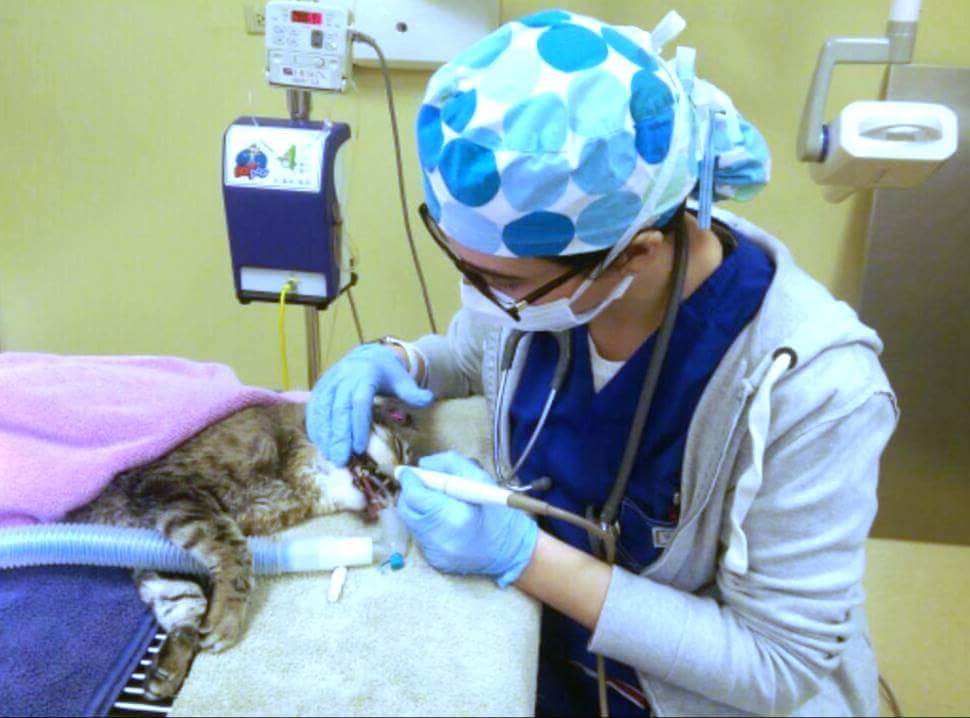Oral Health is our Top Priority!
Celebrate with South Town Animal Hospital by loving your pets teeth! At every exam our doctors view the condition of the pet’s mouth. More often than not, periodontal disease is present in pets over the age of 3; eight out of ten dogs, and seven out of ten cats show dental disease at this age. Periodontal disease results when residual food, bacteria and tartar collect in the spaces between the gum and teeth, causing infection that spreads to the bone. Often, pets come in with red inflamed gums or significant tartar. Tartar around molars can can be difficult to reach. Many times it is often identified only in an exam.
Our pets typically aren’t very good at telling us what hurts. They rely on their humans to find out and care for them. Pets can have many of the same dental problems as people, including broken teeth and roots, abscesses or infected teeth, cysts or tumors in the mouth, misalignment of the teeth and bite, broken (fractured) jaw, or palate defects such as cleft palate. Each of these can cause a significant amount of pain for your pet.
“Dog breath” really shouldn’t smell bad – if it does, your dog may have excess bacteria that is wreaking havoc inside of your dog’s mouth. This not only smells bad, but can cause other health issues including kidney, liver, or heart disease. It’s difficult to treat the diseases in the major organs without first treating the cause– which could be your pet’s teeth. The best route of action is prevention.
We often have clients coming in because their pet has become picky or isn’t eating. Some pets will even lose a significant amount of weight due to this. One major cause of reluctance to eat is periodontal disease. Loose teeth can come from gum recession from high calculus build up. Teeth can fall out, crack, or become infected, which can make it hard to chew or swallow.
Here at South Town Animal Hospital we recommend yearly dental cleaning. Having yearly dental cleaning can help prevent the higher costs of extreme dental work or extractions later on in life. It is much more cost-effective to prevent dental conditions than to treat them. A 2014 study by Veterinary Pet Insurance Co. showed that the average cost per pet to prevent dental disease is just one-third of the average cost of treating dental disease. Preventative oral care for your pet now can help save you money later.
But why must my pet go under anesthesia for dental work? As humans, our dentists can tell us what they are doing, and you’ve asked them for their help. Our pets however, are not aware of what is happening and what is being done will help them. Having a pet anesthetized for dental work is imperative to keeping your pet calm and safe during the procedure. Pets with dental work are typically sent home the same day as the procedure.
3 things you can do for your pet’s teeth
- Take your pet for a dental exam at least once a year
- Talk to your veterinarian about an at-home regimen
- Schedule regular veterinary dental cleanings for your pet
 Call us or email us for an appointment or if you have any questions. South Town Animal Hospital is always here for your pets oral health care needs!
Call us or email us for an appointment or if you have any questions. South Town Animal Hospital is always here for your pets oral health care needs!



